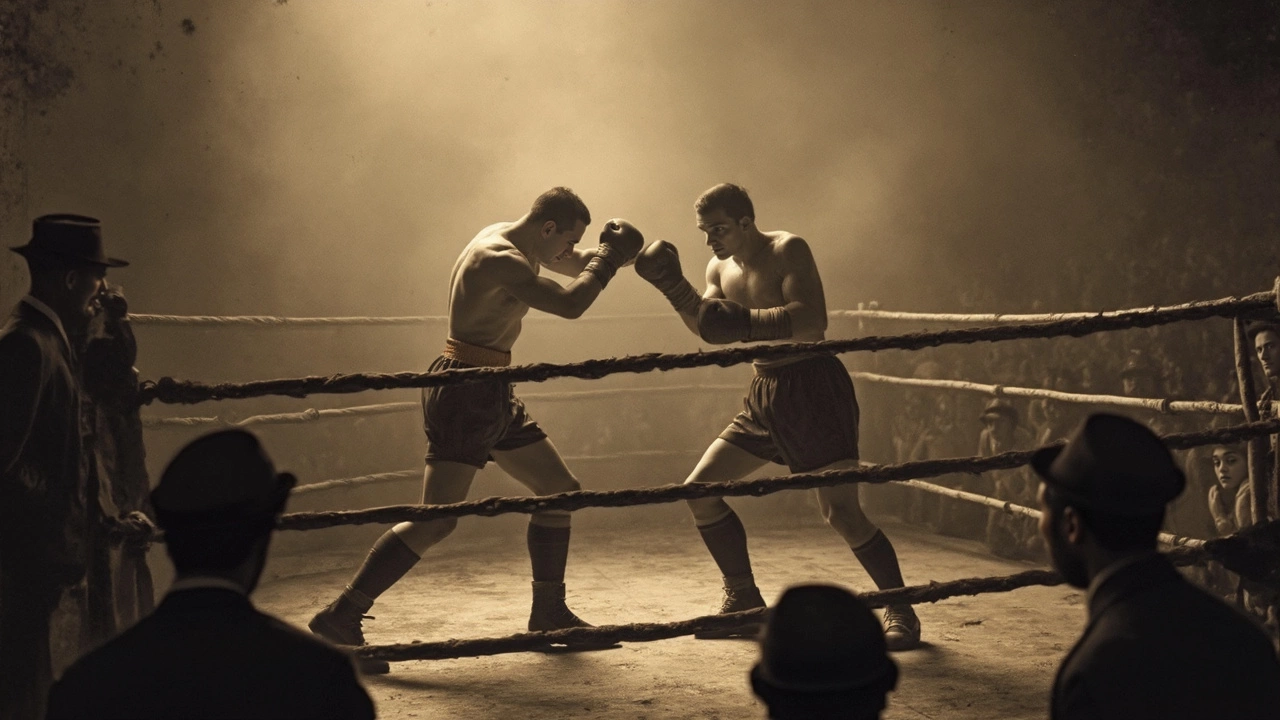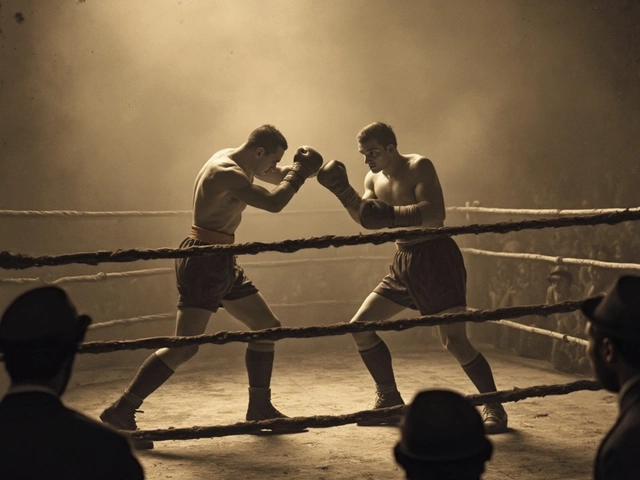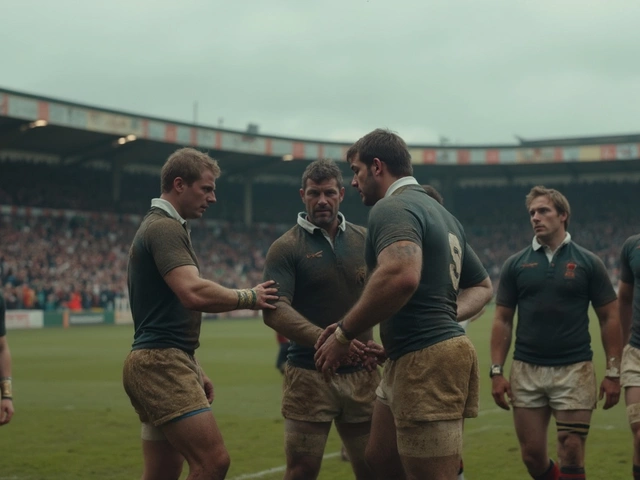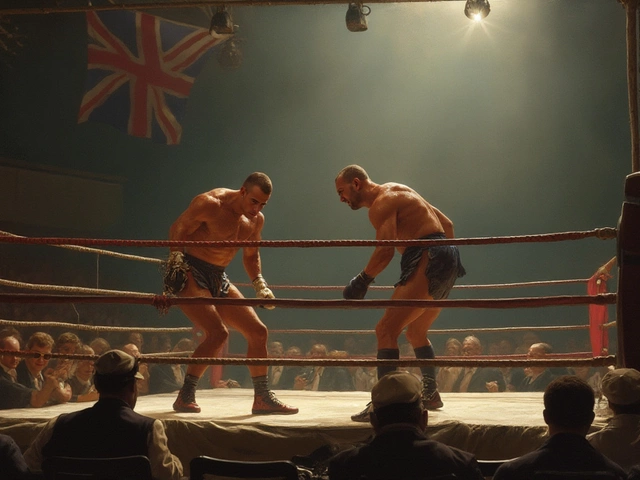Are Boxing Fights Really Called Matches?
Ever wondered whether boxing fights are officially called 'matches'? You're not alone. Even amongst fans, the terminology can get pretty confusing. To clear things up, we’re diving into what really qualifies as a match in the boxing world. Understanding these terms not only helps in conversations with fellow fans but also enriches your knowledge of the sport.
In essence, a 'boxing match' is the formal term for a competition between two boxers, as agreed upon by the rules of the sport. But why 'match' and not just 'fight'? Turns out, the term 'match' brings a level of formality and structure. When boxers step into the ring, it's not just a brawl; it's a regulated event with rounds, scores, and tons of rules.
- Understanding Boxing Terminology
- The History Behind 'Matches'
- Differences Between Fights and Matches
- Why Terminology Matters
Understanding Boxing Terminology
Boxing, like every sport, has its own language, and getting a handle on these terms can make all the difference when you're talking shop or watching a fight. A lot of folks use terms like 'fight' and 'boxing match' interchangeably, but they have specific meanings in the sport. Here's what you need to know.
First off, a boxing 'match' refers to an official, organized contest between two fighters, complete with agreed-upon rules and structure. On the other hand, 'fight' is a more general term that could refer to anything from a scuffle to an all-out battle in other contexts. In boxing, while 'fight' can still describe a match, using 'match' is a nod to the event's competitive challenge and formal set-up.
So what makes up a standard boxing match? Typically, it involves:
- Rounds: Usually lasting about three minutes, although this can vary based on the fighters' experience and the stakes involved.
- Judges: They score each round, based on factors like technique, defense, and ring control.
- Referee: This person ensures rules are followed and checks the fighters' safety during the bout.
- Scorecards: These determine the winner if no knockout or technical knockout happens.
Also, the World Boxing Association (WBA), one of the major organizations in boxing, has detailed guidelines about what constitutes an official match. Things like weight classes, glove sizes, and even the type of ring can impact the nature of a match.
| Term | Definition |
|---|---|
| Boxing Match | Formal contest with rules, judges, and rounds |
| Fight | General term; could be informal or part of the match |
Getting these terms right is more than just semantics—it’s about respecting the sport's intricacies. When you say 'match,' you're acknowledging the athletes' efforts and the sport's longstanding traditions. So next time you're at a bout or chatting with a fellow fan, you'll sound like you really know your stuff.
The History Behind 'Matches'
Have you ever stopped to think why we call these showdowns 'matches'? The language around boxing has evolved over centuries, influenced by history, culture, and the love for organized competition. Originally, the term 'match' was borrowed from medieval times when it was used broadly for any contest or competition.
The word became more common in the boxing world during the late 19th century, a period when the sport itself was being redefined. As the Marquess of Queensberry rules came into play in 1867, boxing transitioned from chaotic brawls to more structured events. A 'match' then came to represent an organized event with regulations, timing, and fair play. These rules emphasized what today we call sportsmanship, distinguishing professional bouts from bare-knuckle free-for-alls of old.
"The introduction of standardized rules transformed boxing from a mere spectacle of brutality into a sport of skill," says historian John Gregor.
The popularity of formalized boxing led to terms like 'match' entering mainstream vocabulary. Also, it became crucial in the eyes of promoters and spectators because they wanted to draw a clear line between organized and unorganized fights.
Interestingly, this shift in terminology wasn't just about sounding fancy. It also marked a shift in the perception of the sport, as something that could be respected and admired. Boxing became a platform for skill and strategy rather than pure strength alone.
So next time you're watching a boxing match, remember it's not just about punches; it's about the centuries of tradition and evolution in how we watch and talk about the sport.

Differences Between Fights and Matches
So, what’s the deal with calling some boxing events 'fights' while others get the 'match' label? The terms aren't interchangeable, and knowing the difference is key to sounding like you know your stuff when talking about boxing fights. Let’s break it down simply.
Boxing matches are all about the formalities. They’re structured events governed by a specific set of rules, like those laid out by the World Boxing Association or the International Boxing Federation. Matches typically involve a series of rounds, each lasting three minutes with a one-minute rest in between. Judges score these rounds based on criteria like effective aggression, defense, and ring generalship.
Now, when people refer to fights, they might be talking casually or informally about any bout where two boxers face off, regardless of the official setup. 'Fight' is often used to describe not just the sporting contest but also the spirit of the event—think hard hits and intense face-offs. Saying someone had a great fight might just mean it was exciting to watch, even if it was an unofficial event at your local gym.
Here’s a quick comparison:
- Match: Official, structured, follows guidelines, and includes judges and scoring.
- Fight: Informal, more about the competitive spirit and might not follow official rules.
Even in big, competitive boxing events, some might still casually refer to the encounter as a 'fight', emphasizing the emotional energy rather than the formal arrangement. Still, in professional circles, getting the terms right sets the tone and shows respect for the sport.
Why Terminology Matters
So, why does it really matter whether we call them boxing matches or fights? Well, it turns out, language is super important in sports. It shapes how we view and understand what's happening in the ring. When we say 'match' instead of 'fight,' we're acknowledging all the rules and skills involved. It’s not just two people punching each other but an event with strategy, technique, and talent.
The distinction also affects official records and discussions. In documentation and records, the term 'match' is used consistently to maintain clarity and uniformity across the sport at professional levels. When people talk about historical events or legendary boxers, they refer to 'matches.' This not only honors the boxers’ skills but also respects the game's heritage.
For newbies trying to understand the sport, getting the terminology right helps. If you're chatting with seasoned fans, using the correct terms like 'match' instead of just 'fight' can show you're in the know. It's like the difference between calling someone a 'doctor' and a 'healer'—one's professional, the other's vague.
A stat that might surprise you is this: globally, there are over 20,000 official boxing matches held each year under formal sanctioning bodies. That’s a lot of events requiring organization, structure, and precise language. The formal terminology keeps it all in check.
So next time you're at a game or just catching up over drinks, remember that calling it a boxing match isn't just about sounding fancy—it's about respecting the sport's intense dedication, rules, and history.







